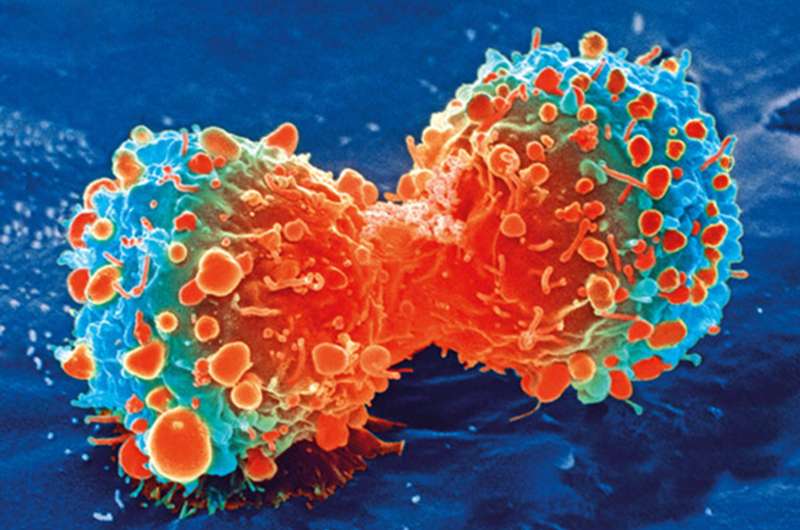Cell fate signaling: Research reveals an attractive target for cancer therapy

The protein kinase MELK is thought to affect cell cycle regulation, proliferation and mitosis. Overexpression of MELK impacts survival and proliferation of multiple cancer types, including glioblastomas and breast cancer, but its molecular functions in cancer development are unclear.
Tina Iverson, Ph.D., and colleagues have identified a direct, high affinity interaction between MELK and the protein arrestin-3. Arrestins are best known for their regulation of G protein-coupled receptors; they also serve as scaffolds that facilitate cell signaling.
Using a combination of biophysical techniques and in-cell assays, the investigators demonstrated that the MELK/arrestin-3 interaction involves the kinase domain of MELK. They showed that the interaction reduces the numbers of cells in the S-phase of the cell cycle, during which DNA is replicated.
The role of MELK/arrestin-3 in cell fate signaling may make this interaction an attractive target for cancer therapy, the authors reported in the November issue of Cellular Signalling.
More information: Nicole A. Perry et al. Arrestin-3 interaction with maternal embryonic leucine-zipper kinase, Cellular Signalling (2019). DOI: 10.1016/j.cellsig.2019.109366



















